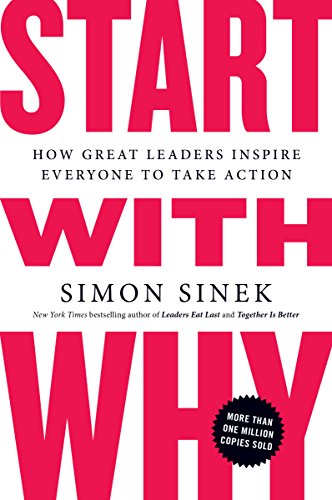

This article is an excerpt from the Shortform summary of "Start With Why" by Simon Sinek. Shortform has the world's best summaries of books you should be reading.
Like this article? Sign up for a free trial here .
The common sentiment when it comes to building a business is that you have to make sure you’re beating the competition. But is it more important, in business and in life, to compete against yourself?
The problem with the idea of crushing the competition is that it makes you focus on what other companies are doing rather than steering your own. Instead of competing against others, it’s more effective to compete against yourself. Learn why.
Rethink Competition: Compete Against Yourself
Here’s an anecdote of Ben, a high school cross-country track runner. He was the slowest on his team because Ben was born with cerebral palsy. Running was hard for Ben, but he pushed himself to finish each race. His WHY was to challenge himself to do better every race.
His teammates, all faster than he, support his WHY. After every race, they come back onto the track to run beside him to the finish line.
This story reminds us that when you compete against yourself and no one else, other people–even those who others might identify as your competitors–want to help you.
Companies and organizations that focus on WHY are more concerned with pushing their companies forward than going head-to-head with the competition. Starting with WHY makes you laser-focused on your own mission, not the missions of others. You need to compete against yourself.
And that leads Sinek to make his final point as he sums up the impact of starting with WHY. When you start with WHY:
- You make smarter decisions more quickly
- You foster optimism, creativity, and loyalty within your employees
- You create loyalty and trust with your customers
- You inspire others and become an innovator in your industry
In other words, starting with WHY can change more than just your own life and business. It can change the world. And it starts with competing against yourself.
Samuel Pierpont Langley vs. The Wright Brothers
The Wright Brothers are examples of people who knew to compete against yourself; Langley didn’t understand this.
Samuel Pierpont Langley had a goal: he wanted to be the first man to build a working airplane. He seemed like the perfect man for the job: he was a senior officer at the Smithsonian Institution, had been a mathematics professor at Harvard, and had secured a $50,000 grant from the War Department to help fuel his ambitions.
Already an established man, he sought fame and glory. He wanted to have the same level of fame as a Thomas Edison. He wanted the result more than the WHY itself.
A few hundred miles away, two brothers–Will and Orville Wright–had the same vision but none of the resources. They had no funding, no government connections, and no one on their team had a college education.
But they had one resource in spades: inspiration. True scientists at heart, they were obsessed about the physical problem of flight and balance, and they were determined to make it work. They knew to compete against yourself. They endured countless failures because they believed the scientific problem was solvable. And they knew if they succeeded, it would transform the world. This WHY inspired their team to surmount every setback.
The Wrights’ inspiration came from starting with WHY, which was much different from Langley’s motivation. That WHY is what made them the first men to achieve manned flight on December 17, 1903—not Langley.
Indeed, once the Wright brothers succeeded, Langley quickly quit his flight dreams. He wasn’t interested in the idea of competing against yourself. Had he been inspired by the WHY, he would have been excited to improve on the technology. Instead, since he cared mainly about fame and competition, the failure was humiliating, so he quit.
———End of Preview———

Like what you just read? Read the rest of the world's best summary of "Start With Why" at Shortform . Learn the book's critical concepts in 20 minutes or less .
Here's what you'll find in our full Start With Why summary :
- What Steve Jobs did right compared to every other business leader
- How to define your organization's WHY
- How to help your organization avoid losing its edge as it succeeds





